In the dynamic realm of education, where innovation continually shapes the learning landscape, generative artificial intelligence (AI) emerges as a transformative force poised to redefine educational practices worldwide. Looking ahead to the next five years, the integration of generative AI promises profound advancements, particularly in the realm of personalized learning at scale.
Get Started for FREE
Sign up with Facebook Sign up with X
I don't have a Facebook or a X account


 Your new post is loading... Your new post is loading...
 Your new post is loading... Your new post is loading...
Watch this video to learn more about the fully online, accelerated, project-based Master of Education in Educational Technology at the University of Texas Rio Grande Valley. For more information, visit: https://www.utrgv.edu/edtech/index.htm
EDTECH@UTRGV's insight:
This 30-hour accelerated program designed to prepare persons in K-12, higher education, corporate, and military settings to develop the skills and knowledge necessary for the classrooms and boardrooms of tomorrow. Students in this program have the opportunity to earn one or more graduate certificates in E-Learning, Technology Leadership, and Online Instructional Design. 
harrietwatkins's curator insight,
August 24, 2024 9:34 PM
This is a fantastic program! Its practical, real-world based and applicable to many areas of industry where teaching and learning, training and development are used.
From
www
"Here’s a sustainable plan to bring you up to speed on a technology that academe can’t afford to ignore."
EDTECH@UTRGV's insight:
"A quiet disaster is unfolding in college classrooms around this country as artificial intelligence becomes an undeniable reality for students — with little or no guidance from professors. Most faculty members never dreamed they would need to learn about an emerging technology as it arrives in real time and, understandably, they don’t feel comfortable talking about it in class."
"In his vividly written “Are You Ready for the AI University?” Scott Latham depicts two visions: a transformation experienced by today’s colleges and universities, followed by a description of new, AI-centered institutions."
EDTECH@UTRGV's insight:
"[S]tudents will prefer AI in classes, due in part to their life experience but more for the technology’s personalization and convenience."
AI can generate valuable insights for higher education institutions and it can be used to enhance the teaching process itself. The caveat is that this can only be achieved when universities adopt a strategic and proactive set of data and process management policies for their use of AI.
EDTECH@UTRGV's insight:
"[D]ata governance is about more than just security; it also encompasses data quality, management practices, and clearly defined roles and responsibilities."
From
blog
This Teacher Appreciation Week, we're celebrating educators around the world with FREE membership. Join TCEA for free May 5-9, 2025! Explore this and more at TCEA TechNotes Blog, your go-to source for educational technology and teaching innovation.
EDTECH@UTRGV's insight:
"Know anyone who could use our help? Tomorrow is the LAST DAY they can join TCEA for free - and forever!"
From
www
To give students more detailed feedback on a writing assignment than she could provide herself, Katie Durkin experimented with AI. She's happy with the results.
EDTECH@UTRGV's insight:
"A teacher used AI tools during two revision cycles of student writing to provide personalized, actionable feedback and rubric-based evaluations, which enhanced student revisions and informed targeted instruction without replacing teacher guidance."
Safeguarding student data and securing the digital future of education is a joint venture to keep Android apps safe for schools.
EDTECH@UTRGV's insight:
"In May 2024, Microsoft identified a critical vulnerability pattern targeting Android applications, ominously called “Dirty Stream.” This vulnerability allows malicious apps to overwrite files, potentially leading to arbitrary code execution, token theft, and data manipulation. Among the apps affected were WPS Office and File Manager, both commonly used for document handling in educational settings."
Discover how AI-powered assessments are transforming eLearning with personalized experiences and real-time feedback. Explore the future of education today!
EDTECH@UTRGV's insight:
"Traditional eLearning courses often present static content, forcing learners to follow a one-size-fits-all approach. AI transforms this by tailoring stories to each learner's pace, preferences, and knowledge gaps"
From
www
"Across industries, companies are racing to integrate AI-powered chatbots and assistants into their operations. If it feels to you like a gold rush, you may have a point. The potential for AI to enhance productivity, streamline workflows and drive competitive advantage is undeniable. However, many organizations make a critical mistake: They rush to deploy AI without first addressing the quality of the information feeding it."
EDTECH@UTRGV's insight:
"AI chatbots are exceptionally good at finding and presenting information in natural language. But they cannot distinguish between valid, up-to-date content and outdated, obsolete or even incorrect information."
This story was first published by Voice of San Diego and is reprinted with permission. Community colleges have been dealing with an unprecedented phenomenon: fake students bent on stealing financial aid funds. While it has caused chaos at many colleges, some Southwestern College faculty feel their leaders haven’t done enough to curb the crisis. This story […]
EDTECH@UTRGV's insight:
"In some California colleges, determining whether a student is fake or real can be difficult"
"A professor at Michigan State University teaches two courses in a virtual reality setting, allowing for focused discussions and learning in a new and engaging environment."
EDTECH@UTRGV's insight:
"Students at Michigan State University can get hands-on experience learning about virtual reality and avatars through a fully VR classroom experience."
"Artificial intelligence has rapidly started finding its place in the workplace, but this year will be remembered as the moment when companies pushed past simply experimenting with AI and started building around it, Microsoft said in a blog post accompanying its annual Work Trend Index report."
EDTECH@UTRGV's insight:
"These so-called Frontier Firms will be built around “on-demand intelligence and powered by ‘hybrid’ teams of humans + agents, these companies scale rapidly, operate with agility, and generate value faster,” according to the report. Microsoft argued that within the next two to five years, every company will be on the journey to becoming one."
There are a lot of AI tools floating around. But which ones are relevant, safe, and easy to use? Evaluate AI with this rubric and checklist! Explore this and more at TCEA TechNotes Blog, your go-to source for educational technology and teaching innovation.
EDTECH@UTRGV's insight:
"This rubric breaks down the key criteria to consider, making it easy for any educator, regardless of how tech-savvy they are, to make informed decisions." |
"The question is no longer whether AI will automate aspects of your job. It’s whether you’ll have the initiative and creativity to out-evolve the automation."
EDTECH@UTRGV's insight:
"A recent survey by Deloitte found that while 94% of executives believe AI will dramatically shift work models, only 17% have a clear plan for what that shift actually looks like."
There is no shortage of opinions or perspectives on AI and its impact on education. As we get more granular in our understanding of risks and possibilities, new possibilities and risks emerge. Not even necessarily new, but more defined. As I write this, I realize the first paragraph isn’t great.
EDTECH@UTRGV's insight:
"Faced with generative AI in our classrooms, the obvious response for us is to influence students to adopt the helpful uses of AI while persuading them to avoid the harmful ones. Our problem is that we don’t know how to do that."
From
www
"Minecraft is a movie and a very popular video game with iconic block graphics that characters can "mine" for building material and gems. It's also what cognitive scientist Charley Wu and his team utilized to study how people learned as they played. Their unique study focused on both individual and social learning — and they found a clear answer to which players were most successful. (Hint: Get you a player who can do both.) Their results were published recently in the journal Nature Communications."
EDTECH@UTRGV's insight:
"The study found that the most successful players were the most adaptive, switching between individual mining and using social learning when the situation called for it."
Discover how AI avatars are changing the way we approach and deliver training content, making it more efficient, authentic, and personalized.
EDTECH@UTRGV's insight:
"[T]he true power lies in their ability to maintain a personal touch, capturing the trainer's voice, tone, and cultural sensitivity, ensuring that the content resonates with learners on a deeper level."
Explore the ethical concerns of iris scanning and identity verification with Sam Altman's World ID project. Get classroom-ready materials.
EDTECH@UTRGV's insight:
"Sam Altman's World project is scanning irises across the U.S. to verify who's human—raising massive questions for educators, parents, and students."
Smarter content filtering technology gives K–12 students more access, more appropriately, while locking down dangerous online activity.
EDTECH@UTRGV's insight:
"When schools rely solely on a filter that has a list of “good” and “bad” websites, they miss the gray areas. Sites like YouTube, Reddit and other social media platforms are often universally blocked. Additionally, students have figured out how to use VPNs and proxies, which mask their true destination and intent online."
"In an era where classroom engagement and personalized education are more important than ever, just-in-time teaching (JiTT) emerges as a key strategy for college instructors. This pedagogical approach integrates active learning with the timely use of instructional technology to enhance student understanding and participation."
EDTECH@UTRGV's insight:
"As you integrate JiTT into your teaching practices, remember the key is flexibility and responsiveness to your students' learning needs"
"A new book on teaching and learning with generative AI, co-edited by American education technology professors Joseph Rene Corbeil and Maria Elena Corbeil, moves beyond reactions to AI towards a practice-based guide for educators and staff navigating the challenges of AI in classrooms and curricula.
EDTECH@UTRGV's insight:
Thank you to Karen MacGregor for her wonderful writeup on our new book, "Teaching and learning in the age of generative AI"
To realize their full potential microcredentials must be anchored in strong, scalable frameworks that align education with workforce needs & learner goals.
EDTECH@UTRGV's insight:
"[O]ne of the biggest challenges facing the microcredential movement is inconsistency. Without clear structures and shared standards, these programs risk losing credibility and long-term value."
For today's higher education chief information officer, strategy collides with surprise and the pace never really slows down.
EDTECH@UTRGV's insight:
"Welcome to life as a modern chief information officer, where strategy collides with surprise, and the pace never really slows down."
Early adopters of artificial intelligence are bringing the tech into their districts with thoughtful rollouts, ample training and clear guidance.
EDTECH@UTRGV's insight:
"Three years before ChatGPT’s debut, a team at Gwinnett County Public Schools near Atlanta began studying an intriguing question: How should GCPS prepare students for the future of artificial intelligence? Equally important, how could AI empower teachers to deliver personalized learning?"
In a world where AI can think for us, over-reliance could harm our reflective thinking abilities.
EDTECH@UTRGV's insight:
"[W]hile GenAI makes accessing information quite convenient, it may come at a cost, especially when it comes to how we think about and learn from the information provided by GenAI tools."
An edtech expert describes what substitution, augmentation, modification, and redefinition mean in lesson design—and how to reach that elusive final level.
EDTECH@UTRGV's insight:
“How often am I striving for transformational use of technology in the classroom? As engagement often equals increased learning, how can I move toward the redefinition level?” |











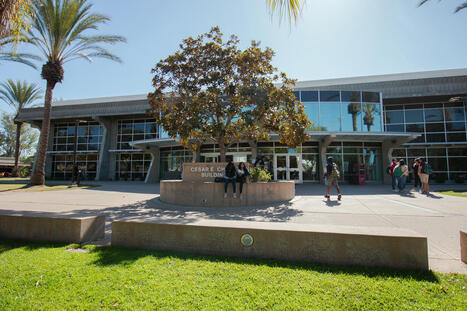

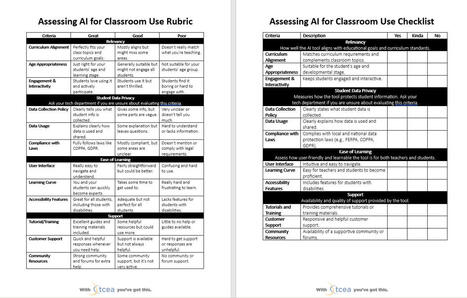

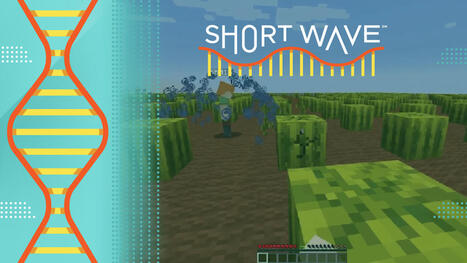



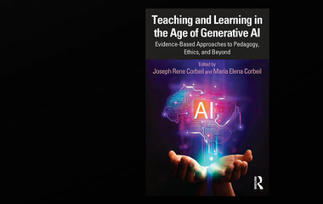



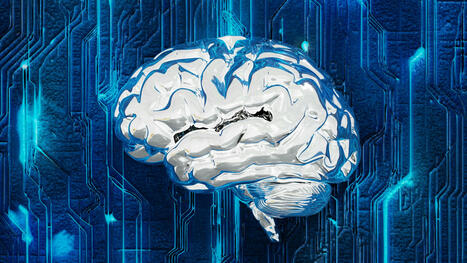






Looking ahead to the next five years, the integration of generative AI promises profound advancements, particularly in the realm of personalized learning at scale.